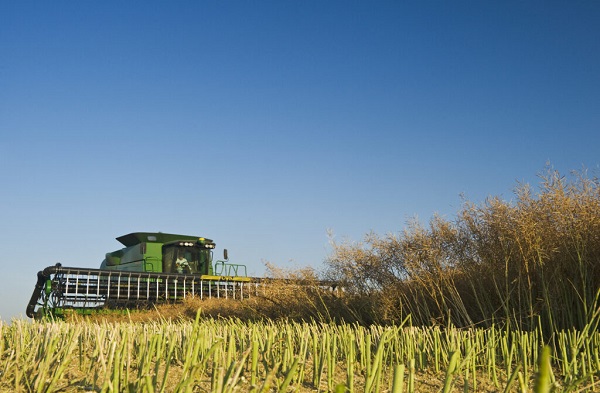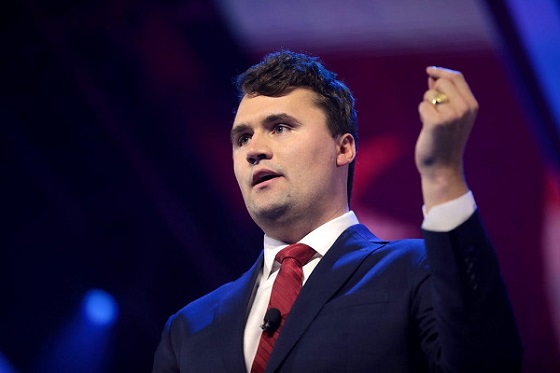Sports
Former Olympic swimmer says it’s ‘not rocket science’ that men don’t belong in women’s sports
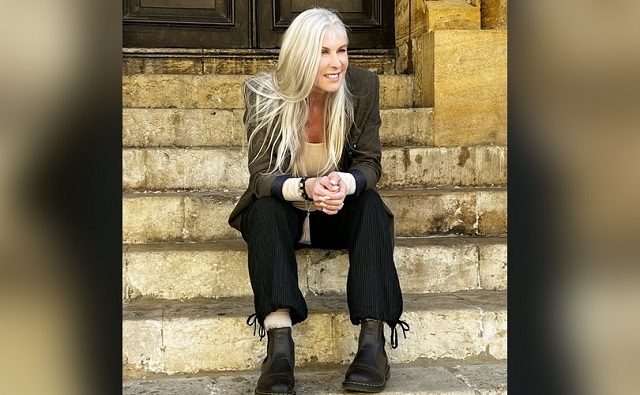
From LifeSiteNews
‘51% of humans are biological females, they simply deserve their own category of sport, free from any person, who is not female,’ Sharron Davies wrote on X.
A decorated swimmer who won a silver medal at the 1980 Moscow Olympics is the latest athlete to criticize men competing in women’s sports.
“It’s not rocket science it’s not hard,” British swimmer Sharron Davies wrote on X today. On March 31, she wrote that it’s “simply cheating” for male athletes to compete in female races.
51% of humans are biological females, they simply deserve their own category of sport, free from any person, who is not female. It’s not rocket science it’s not hard. Let’s be kind to that 51% because for the whole of the modern Olympic era they have not had anywhere near parity
— Sharron Davies MBE (@sharrond62) April 3, 2024
Spot the male athlete in the women’s race! It’s simply Cheating https://t.co/e5AhnCuRCF
— Sharron Davies MBE (@sharrond62) March 31, 2024
Last year, Davies released a book, Unfair Play: The Battle for Women’s Sport, which argues that allowing men who “identify” as women to compete as females “is merely the latest stage in a decades-long history of sexism on the part of sport’s higher-ups.”
“Sharron Davies is no stranger to battling the routine sexism the sporting world,” the book’s blurb explains. “She missed out on Olympic Gold because of blatant doping among East German athletes in the 1980s, and has never received justice. Now, biological males are being allowed to compete directly against women under the guise of trans ‘self-ID’, a development that could destroy the integrity of female sport.”
Davies has reposted a number of stories about “trans” athletes dominating female sports. She is also critical of Scotland’s new “hate crime” law, which critics such as Harry Potter author J.K. Rowling have warned will effectively criminalize free speech as related to transgenderism.
The rise of male athletes being allowed to compete in women’s sports has allowed men to steal victories from at least 635 female athletes, according to the website shewon.org, which tracks such incidents. It has also led to injuries of female athletes and forced them to undress in locker rooms alongside males.
“My teammates and I were forced to undress in the presence of Lia (sic), a six-feet, four-inch-tall biological man fully intact with male genitalia, 18 times per week. Some girls opted to change in bathroom stalls and others used the family bathroom to avoid this,” University of Pennsylvania swimmer Paula Scanlan told the U.S. House Judiciary Committee last year.
Health
Medical experts urge Supreme Court to protect women’s sports from ‘transgender’ males in landmark case

A photo of the winner’s podium, captured by Elizabeth Wilson, mother of Ahnaleigh Wilson, who placed second. The faces of the other athletes are blurred as they are minors, and parental consent was not obtained. May 18. 2024, Cashmere, WA.
From LifeSiteNews
Sex ‘cannot be changed,’ and girls forced to compete against gender-confused males ‘face unequal competition’ and ‘higher injury risk,’ the American College of Pediatricians warns.
As the U.S. Supreme Court prepares to hear two cases that may settle whether states are legally permitted to maintain the integrity of girls’ and women’s sports, medical experts have filed a brief urging the justices to allow states to protect female student athletes from being forced to compete with gender-confused males.
They cite the unfairness and dangers of “prioritiz[ing] gender ideology over biology.”
In the two cases, Little v. Hecox and West Virginia v. B.P.J., lower courts have undermined women’s sports laws and forced schools to let boys compete in female sports.
‘Transitioning’ to a different sex is biologically impossible’
The American College of Pediatricians (ACPeds) – one of the nation’s leading science-oriented medical organizations – explains in its brief that “When males compete in female categories, girls predictably lose roster spots and scholarships, face unequal competition, and in some sports bear higher injury risk. Those are real medical and developmental harms to minors … sex-separated teams are evidence-based safeguards for fairness and equal opportunity.”
“Sex is not assigned, and it cannot be changed. It is a stable biological reality, and grounding athletic classifications in that reality is necessary to maintain fairness,” explains ACPeds.
They remind the justices that “Biological sex [is] an immutable and objectively verifiable trait” and that “‘Transitioning’ to a different sex is biologically impossible.”
‘Testosterone suppression does not eliminate male performance advantages’
Across all sports, “men outperform women by margins ranging from 10% in swimming and rowing to over 50% in baseball pitching,” the brief explains. “And hormone suppression does not close the gap: even after years of treatment, male athletes retain strength and endurance levels above those of female peers … athletic advantages that hormone suppression and surgeries cannot erase.”
“While dismissing the well-documented physiological differences between males and females, the [lower courts] embraced the unproven claim that identity and hormone [use] can erase sex-based advantages,” wrote the health professionals. “But that is false: the evidence shows these differences are in fact sex-based, not hormone level- based, and those differences amply justify sex segregated sports—and associated intimate spaces such as locker rooms.”
ACPeds is not the only group urging the Supreme Court to rule in favor of allowing states to protect girls’ sports competitions from gender-confused males.
Heroic former “transgender”-identifying individuals Billy Burleigh, KathyGrace Duncan, Laura Perry Smalts, and Jane Smith filed a brief in support of the ability of states “to protect young people from the harms of transitioning by not ‘affirming’ a student’s perception as a member of the opposite sex and instead maintaining separate sports teams for girls and boys.”
They contend that “research shows that an increasing number of youth and adults are detransitioning, indicating harm and lack of efficacy of the interventions” to chemically and surgically transition young people.
Riley Gaines and 32 current and former college athletes have filed a brief, explaining to the nine justices that they have been “harmed by the rules of college sports governing bodies that have authorized and continue to authorize men to take women’s places and share women’s locker rooms, showers and other private spaces in college sports.”
“The transgender eligibility rules of college athletic associations and conferences have system-wide discriminatory impacts on women,” write the former college athletes, who say they “have been harmed by the college sports governing bodies imposing transgender eligibility rules.”
Sports
CFL Evolution! Canadian Football League moving field goal posts, changing “rouge” rules, shrinking end zone and field size!
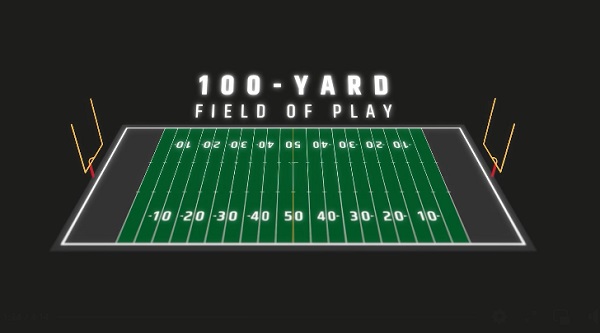
Tradition Meets Innovation: CFL announces major changes to the game
The Canadian Football League (CFL) is making a bold move to evolve the game with a set of changes centered upon entertainment and innovation.
At a media conference, Commissioner Stewart Johnston announced that changes will be instituted over the next two seasons through a phased approach. The most significant modifications will come in 2027 with goalposts being moved to the back of the end zone and the field being re-sized. In anticipation of these structural changes, beginning in 2026, the rouge will be modified and adjustments will be introduced to ensure more consistent game flow.
“This is all about making our great game even more entertaining,” said Commissioner Johnston. “We are trading field goals for touchdowns, while improving fan experience in stadiums and at home.
“These changes are the most significant in decades. We are retaining the unique elements upon which our traditions stand, but innovating where change is needed to evolve our world-class game.”
The package of changes was approved unanimously by the CFL’s Lead Governors, which includes team owners and chairpersons.
“I commend the Board of Governors for its unwavering commitment to a culture of constant improvement,” added the Commissioner.
“Our governors do not take change lightly because they know how much the CFL, and the Canadian icon that is the Grey Cup, mean to generations of Canadians. These changes are about improving something that is already great. They are rooted in data and analytics; they have been thoughtfully and carefully considered. But they are big and bold because that’s what’s necessary to make our fantastic game even more entertaining, and to win in the attention economy.”
The CFL Rules Committee – composed of the Commissioner, CFL Head Coaches, the CFL Players’ Association and CFL officials – will review and address the nuances of rules impacted by these changes in the upcoming off-season.
FOOTBALL CHANGES – 2027 PHASE
GOALPOSTS AT THE BACK OF END ZONES
To allow passing offences to target the middle of the end zone and to make settling for field goals less attractive, goalposts will be moved to the back of end zones. The shift removes an obstruction that impacts the middle third of the end zone, helping to drive more of football’s most exciting play: touchdowns. The change also benefits teams pinned deep in their own territory, allowing offences – previously limited by the goalposts – to expand their playbooks, as well as enabling punters to kick more freely from their own end zone without interference.
Moving the goalposts removes an obstruction in the field of play, heightening player safety, while also offering more direct sightlines to big plays in the end zone for fans in-stadium and on broadcast.
Projected gains of repositioned goalposts:
10 per cent more end zone completions
60 more touchdowns per season
15-YARD END ZONES AND 100-YARD FIELDS
To ensure scoring remains high and that the kicking game remains relevant, end zones will be shortened from 20 to 15 yards. The CFL will still have the largest end zone of any form of professional gridiron football. The field will also be shortened from 110 yards to 100, while retaining its distinctive 65-yard width, allowing offences to start closer to the opposition’s end zone.
The adjustment also ensures league-wide uniformity of end zone dimensions.
FOOTBALL CHANGES – 2026 PHASE
MODIFIED ROUGE
The rouge will no longer include a single point for a missed field goal attempt that goes wide of the goalposts. A point will also not be awarded when a punt or kickoff sails through or rolls out the back, or sides, of an end zone without being touched by a returner.
If a punt, field goal or kickoff settles in the end zone, and the returner fails to take it out or takes a knee, a single point will still be awarded.
The change eliminates games being decided by a missed field goal, punt or kickoff through the end zone.
The modified rouge – in conjunction with the repositioned goalposts and the shortened field to be instituted in 2027 – will encourage more aggressive play-calling on third downs, given the threat of the return game or the possibility of yielding favourable field position on the ensuing drive.
OPPOSITE-FIELD TEAM BENCHES AND 35-SECOND PLAY CLOCKS
All teams will be required to have their bench areas on opposite sides of the field, eliminating cases where some players are required to run 50-60 yards for substitutions. Some stadiums currently feature benches on opposite sides, while others are side by side.
To improve game flow and consistency, a new 35-second play clock will automatically begin as soon as the previous play is whistled dead. Currently, the 20-second play clock does not start until manually initiated by an official. The change eliminates inconsistencies in timing caused by teams getting set at their own pace, varying times taken to set yardage markers, and more.
The revised play clock also instills a sense of urgency in players to progress the game and continue the drive in a timely fashion.
-

 Business2 days ago
Business2 days agoCanadian gov’t spending on DEI programs exceeds $1 billion since 2016
-
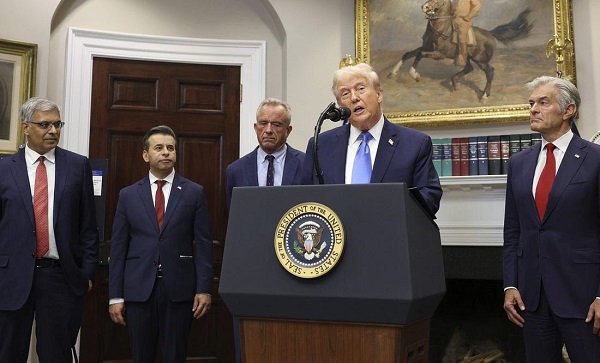
 Autism1 day ago
Autism1 day agoPresident Trump, Secretary Kennedy Announce Bold Actions to Tackle Autism Epidemic
-
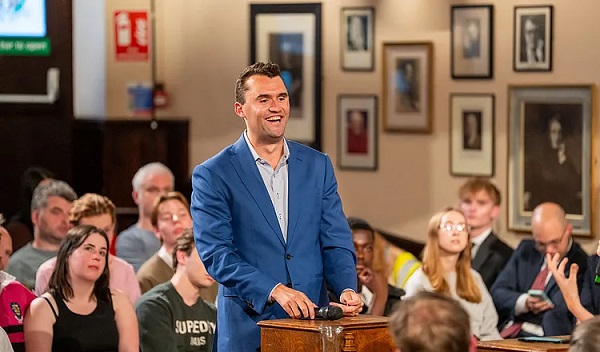
 Frontier Centre for Public Policy2 days ago
Frontier Centre for Public Policy2 days agoCharlie Kirk Fought A Progressive Ideology That Punishes Truth
-
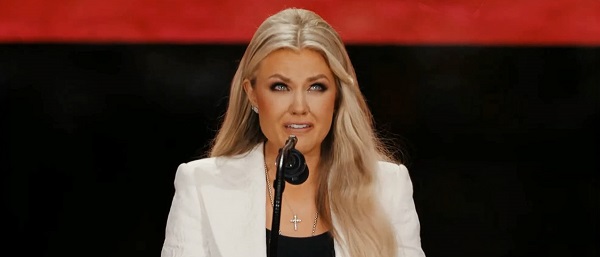
 Crime2 days ago
Crime2 days agoCharlie Kirk’s Widow Says She Forgives Her Husband’s Assassin During Memorial
-

 Health1 day ago
Health1 day agoRFK Jr.’s immunization committee recommends against MMRV vaccine for toddlers
-

 National1 day ago
National1 day agoCanada Recognizes Palestine, Allows Taiwan to Be Sidelined: A Tale of Two Standards in Ottawa’s Foreign Policy
-

 International14 hours ago
International14 hours agoCarney’s Canada has recognized a psycho “state” that doesn’t exist
-
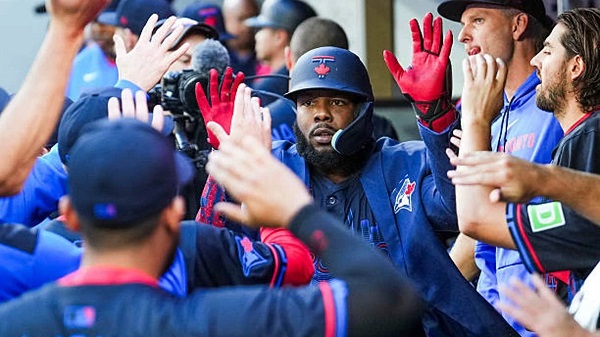
 Bruce Dowbiggin1 day ago
Bruce Dowbiggin1 day agoChoking The Night Away: Can Blue Jays/ Tigers Recover?
